ARTICLE AD BOX

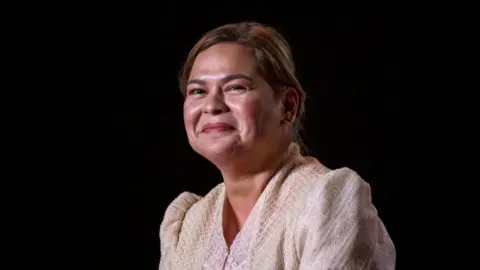 Getty Images
Getty Images
Philippines' Vice-President Sara Duterte stoked controversy when she seemingly threatened to have the president killed
When a sitting vice-president says she has hired assassins to kill the president, and dreams of cutting off his head, you might think that country was in serious trouble.
But then this is the Philippines, where politics and melodrama go hand in hand.
"I have talked to a person,” Vice-president Sara Duterte said on her Facebook page last weekend. “I said, if I get killed, go kill BBM [President Marcos], [First Lady] Liza Araneta, and [House Speaker] Martin Romualdez. No joke. No joke. I said, do not stop until you kill them, and then he said yes."
Last month she told reporters her relationship with President Marcos had become toxic, and she dreamed of cutting off his head. She also threatened to dig up the body of the president’s father from the Heroes’ Cemetery in Manila and dump the ashes in the sea.
Behind all this drama is a once powerful political alliance which has spectacularly unravelled.
A marriage of convenience
The decision by the Marcos and Duterte clans to join forces in the 2022 presidential election was a marriage of convenience. Both candidates were the offspring of presidents – Sara Duterte’s father Rodrigo was the incumbent then - and had strong support in different regions of the Philippines. Both had populist appeal.
However, having both run for president risked dividing their supporters and losing to a third candidate.
So she agreed that Marcos would go for president, while she went for vice-president – the two posts are elected separately – but that they would form one team on the campaign trail. The assumption was that the younger Duterte would then be in prime position to contest the next presidential election in 2028.
It proved a very effective strategy. The UniTeam, as they branded themselves, won by a landslide.
However, as any of her predecessors could have told Duterte, the vice-presidency is largely ceremonial, and has few powers.
The Dutertes had wanted the influential defence portfolio; President Marcos instead gave her Education, an early sign he was wary of letting his vice-president build up her power base.
He also made an abrupt turn away from the politics of his predecessor.
He ordered the Philippines navy and coastguard to stand up to China in disputed areas of the South China Sea. This was a marked contrast to President Rodrigo Duterte who had refused to challenge China’s dominant presence there, and even declared that he loved Chinese leader Xi Jinping.
Marcos also toned down President Duterte’s infamous war on drugs, in which thousands of suspected drug dealers were gunned down.
He has hinted at the possibility of rejoining the International Criminal Court, which has issued an indictment for crimes against humanity against Rodrigo Duterte. The former president has also found himself in front of the Philippines Senate being grilled about the extrajudicial killings that happened during his presidency.
Relations between the two camps soured further when Marcos’s allies in the lower house launched an investigation into Sara Duterte's use of the confidential funds she was allocated when she got the job.
In July, the vice-president resigned as education secretary, and her language became increasingly inflammatory.
The 'alpha’ VP
Sara Duterte is no stranger to controversy. Thirteen years ago, when she was mayor of Davao City, she was filmed repeatedly punching a court official.
She comes from the same political mould as her outspoken father, both of them known for tough talking. He called the Pope a "son of a whore" and boasted of having killed people.
He describes her as the “alpha” character of the family who always gets her way; she says he is hard to love. Like her father she likes riding big motorbikes.
Her latest threats to her one-time ally President Ferdinand “Bongbong” Marcos, though, may prove to be one verbal indiscretion too far.
Marcos has responded by calling Duterte’s comments “reckless” and “troubling”. The Philippines National Bureau of Investigation – its equivalent of the American FBI – has summoned the vice-president to explain her threats on Friday.
She has now walked them back, denying they were real. “This is a plan without flesh,” she explained, accusing Marcos of being a liar who was leading the country to hell.

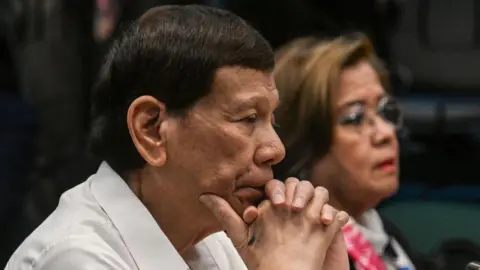 Getty Images
Getty Images
Marcos has pivoted away from the policies of former president Duterte (pictured) who has been accused of extrajudicial killings and crimes against humanity
Perhaps it was inevitable that two such powerful families would become rivals in the maelstrom of Filipino politics, which is still largely about personalities, big families and regions.
Political loyalties are fluid; senators and members of congress constantly shift their party allegiances. Power inevitably concentrates around the president, with his authority to dispense government funds. Former presidents are routinely investigated for corruption or abuses of power once they leave office.
President Marcos wants to rehabilitate the reputation of his family, after his father’s shameful ejection by a popular uprising in 1986, and will be keen to influence the choice of his successor in 2028. The Dutertes have their own dynastic ambitions.
For now Sara Duterte is still vice-president. She could be removed through impeachment by the Senate, but that would be a risky move for President Marcos. She enjoys strong popular support in the south, and among the millions of overseas Filipino workers, and getting sufficient support in the Senate for impeachment could be difficult.
Mid-term elections are due in May next year, in which the entire lower house and half of the 24 senatorial seats will be contested. They will be seen as a test of the strength for each of the rival camps.
Duterte’s explosive break with the president is an opportunity for her to back her own candidates, and present herself as an alternative to a government which has lost popularity over the lacklustre performance of the economy. That could give her a better launching pad for the 2028 presidential race than staying shackled to the Marcos administration.
But after her incendiary comments of the past few weeks, Filipinos must be wondering: what will she say next?

 1 month ago
11
1 month ago
11
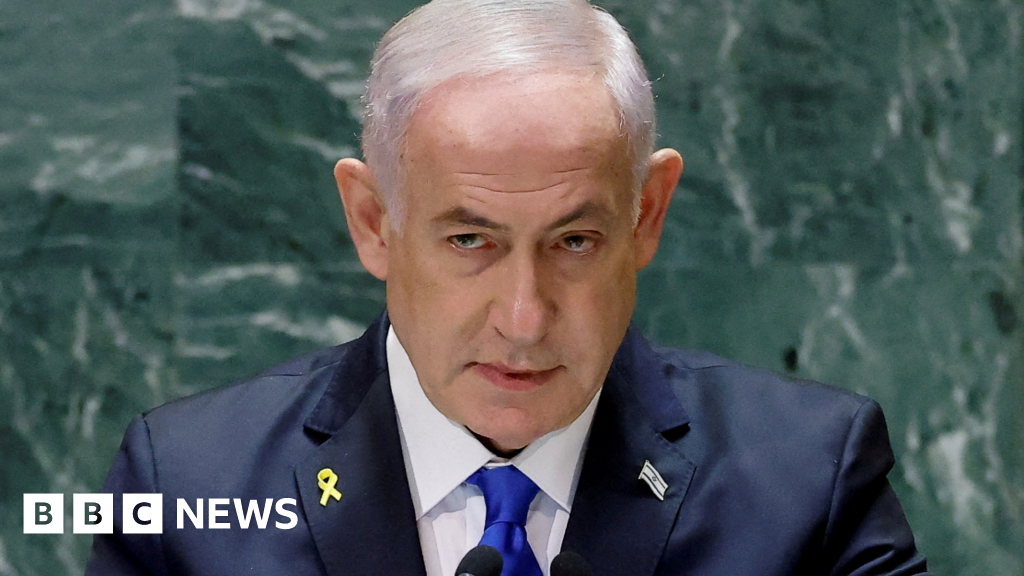
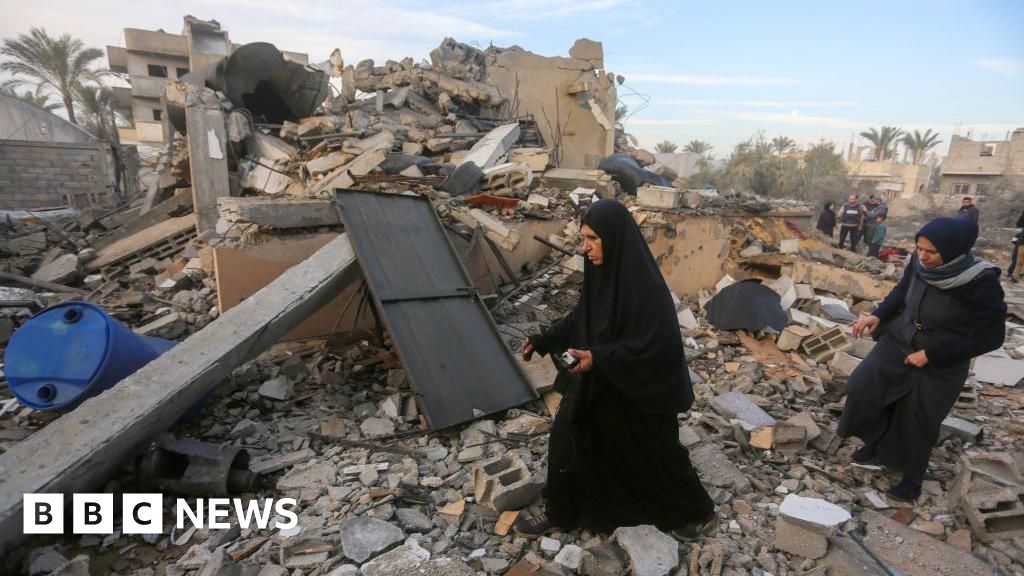
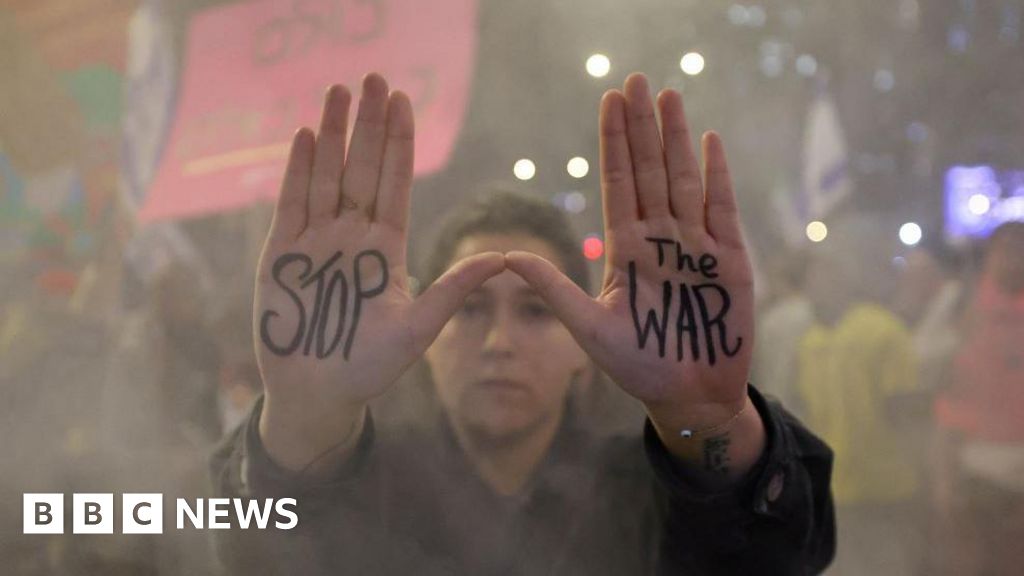





 English (US) ·
English (US) ·